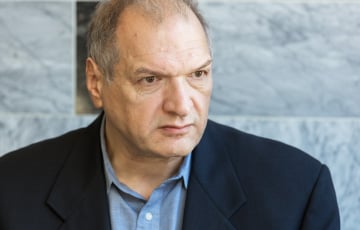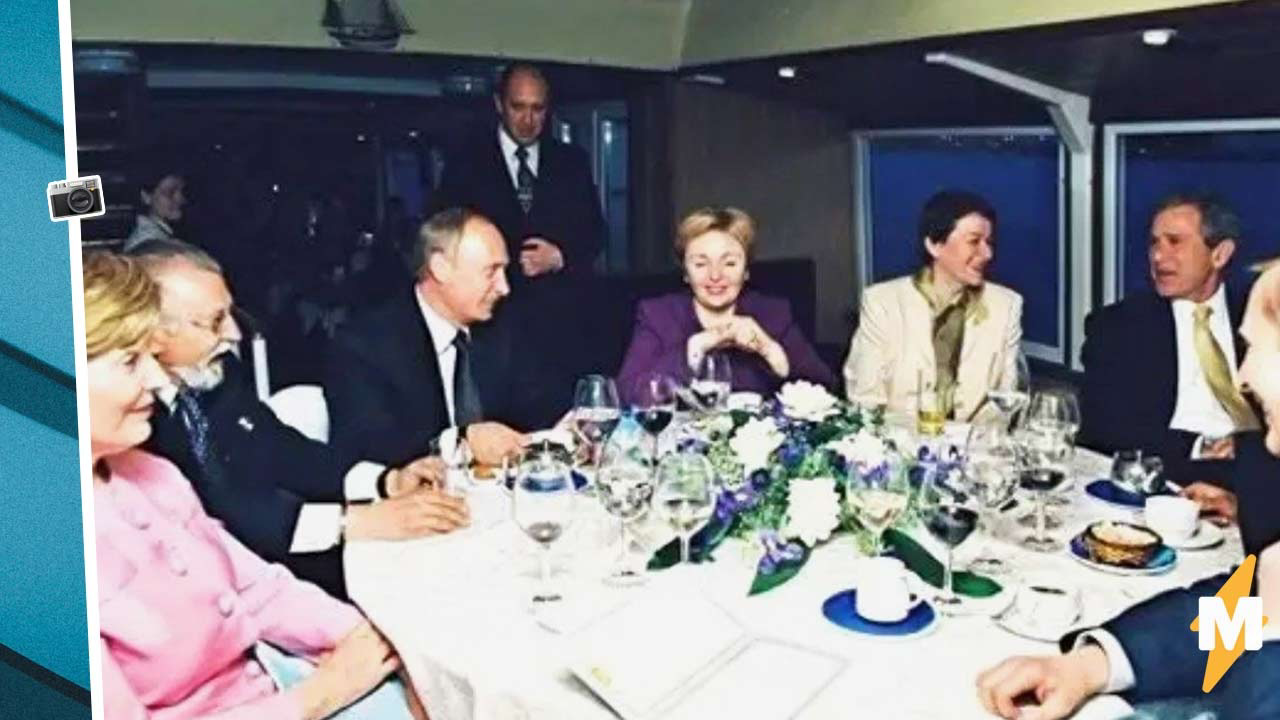So... What Happened With Prigozhin’s Military Putsch?
- 26.06.2023, 16:18
- 1,294

PHOTO: CHARTER97.ORG
A classic story in the history of the security services happened.
The understanding of what really happened will come to us gradually, with the accumulation of more and more details, which are not enough for the full picture right now.
I will allow myself to make a few assumptions, but I want to stress at once that these are my hypotheses, based solely on my intuition as a historian who has studied the history of Russia and its security services for decades. I do not have any evidence to support my theoretical speculations.
Evgeny Prigozhin, an undoubtedly unremarkable man and former criminal, somehow ended up next to Vladimir Putin, the president of Russia. And even if the rumours that Prigozhin was "Putin's cook" are an exaggeration, the photos of Putin and Prigozhin serving Putin food are a recorded fact by photographers and witnesses. One such witness was (pictured) US President Bush (Jr.). How much should Putin have trusted Prigozhin to let him get that close? Absolutely had to trust him.

And suddenly this man, whom Putin trusted absolutely, commits "treason" against him. That is exactly what Putin said in his short and rather pale speech about the Prigozhin mutiny that began. How on earth could this have happened? How on earth did Putin make such a mistake and let a "traitor" who could, by the way, poison Putin and get away with it?
Here's how. Yevgeny Prigozhin was allowed to approach Putin because while in prison he was recruited by the FSB, proved himself well both in prison and later at large, and over time, as an FSB agent, was planted (that is, introduced) into the circle of people close to Putin. And since Putin himself was KGB/FSB and trusted only "his own", the FSB agent Prigozhin, who was also a former criminal, i.e. a vulnerable man, became "his" cook for Putin. Under Prigozhin, Putin felt comfortable.
The Wagner project was an FSB project. Not Prigozhin as 'Putin's personal chef', but the FSB. Prigozhin's self-confidence was precisely based on the fact that it was not even Putin personally behind him, but the FSB as an agency. A former criminal could not have been allowed to set up his own military structure, moreover working abroad: first in Africa, then in Syria, then in occupied Ukraine. This was only possible if it was an FSB-controlled structure. The existence of uncontrolled organizations, especially military ones, has never been tolerated by the FSB.
Then Prigozhin's prosperity and impunity before the putsch are understandable.
After the start of the putsch, the FSB got nervous: it opened a criminal case against Prigozhin and took control of "Prigozhin's" 4 billion rubles and gold bars stored in St. Petersburg. They were never "Prigozhin's". They always belonged to the FSB and were intended for expenses related to the Wagner project. The FSB always knew where this money was kept and that is why they found it so quickly in St. Petersburg, far away from the scene of the events.
Not all the pieces of the puzzle are in our possession at the moment. Let us not speculate as to when exactly in the plan devised by the FSB a glitch occurred - if it was a glitch and not part of a previously composed scenario. But a classic story in the history of the security services happened: an agent got out of control. Prigozhin, the chief of the Wagner Group, began to feel dizzy with success. He believed in his popularity (the Russian media helped him a lot), and he thought himself independent and autonomous. He thought that, after all, he was no worse than many other FSB agents who had infiltrated Russian society and businesses by the thousands, and eventually became politicians, businessmen, and bankers recognized in Russia.
Verbal duels between Prigozhin, on the one hand, and Minister of Defence Shoigu, Chief of the Russian General Staff Gerasimov, and President Kadyrov of the Chechen Republic, on the other, have long entertained the public. But because behind Kadyrov, Shoigu and Prigozhin stood, it seemed to everyone, Putin personally, no one took the confrontation seriously. In order to placate Prigozhin's ardor, Putin ordered the Wagnerians to be taken away from him and placed under the authority of Defence Minister Shoigu. "The Wagnerians refused to comply. Then, on Shoigu's orders Russian army helicopters flew missile attacks on the Wagnerian camps. Dozens of fighters were killed. Either Shoigu was out of Putin's control or Putin gave Shoigu an order to punish the Wagnerites that were out of Putin's control.
It was difficult to understand who betrayed Prigozhin - Putin, Shoigu, or the FSB. There was no time to sort it out. A decision had to be made, and Prigozhin made it - to go to Moscow to sort out what had happened.
Shoigu, Gerasimov, and Putin were already frightened. Shoigu fled from Rostov and disappeared from view. Gerasimov, head of the Russian army general staff, hid in a safe house in Rostov. Putin, with Medvedev, left Moscow in a hurry. And Prigozhin moved on.
He took Rostov quickly, without resistance or losses. From Rostov to Moscow, it was just over 1,000 km. Defending against the attacks, the Wagnerians shot down seven helicopters and one military plane with Russian soldiers. But when the media was already reporting that Moscow had been placed under martial law, that there were tanks and armored personnel carriers in the streets, that all buildings of little importance had been taken under protection by the security forces, and that all public events had been canceled, suddenly came the sensational news: Prigozhin stopped his troops and turned back.
This was followed by an equally sensational statement from the press service of Lukashenka: Lukashenka, it turns out, spent the whole day negotiating with Prigozhin and persuading him to stop, to refuse to occupy Moscow, and to turn back. It turned out, however, that Nikolai Patrushev, former director of the FSB and secretary of the Russian Security Council, also took part in the negotiations.
But why did Patrushev need the mediation of Lukashenka, the Belarusian dictator in Minsk, in these negotiations? Patrushev could talk to Prigozhin without intermediaries, right?
And now my hypothesis, which will either be confirmed or disproved in the near future: Lukashenko was not a mediator in the negotiations between Prigozhin and former FSB director Patrushev but between Patrushev, who represented the FSB, and Putin. Prigozhin was involved in these negotiations as an instrument to exert pressure on the Russian president: if Putin did not agree to Patrushev's (i.e. the FSB) terms, Prigozhin would take over Moscow and Putin would lose power. There is only one way to test this hypothesis: see what happens in the next few days and what changes will take place in Russia's political skyline. Because it is absolutely impossible to accept the explanation of Prigozhin, who has already shot down seven helicopters and one plane, that he refused to storm Moscow to avoid spilling "Russian blood".
Yuri Felshtinsky, especially for Charter97.org









